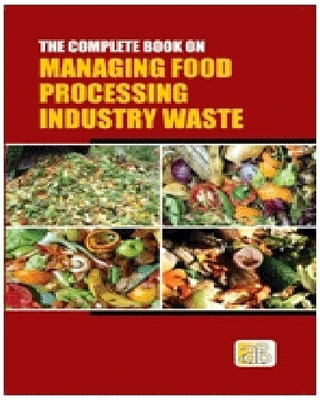The Complete Book on Managing Food Processing Industry Waste(English, Paperback, H. Panda)
Quick Overview
Product Price Comparison
Food industry produces large volumes of wastes, both solids and liquid, resulting from the production, preparation and consumption of food. These wastes pose increasing disposal and can pose severe pollution problems and represent a loss of valuable biomass and nutrients. Many standard industrial waste treatment texts sufficiently address a few major technologies for conventional in plant environmental control strategies in the food industry. Environmental legislation has significantly contributed to the introduction of sustainable waste management practices worldwide. Considering the challenges in the area of food industry, efforts are to be made to optimize processing technologies to minimize the amount of waste. Food processing wastes have a potential for conversion into useful products of higher value as by product, or even as raw material for other industries, or for use as food or feed after biological treatment. There are many examples of utilizing waste materials from plant material processed by canneries, there are many other types of waste that can be utilized. In many canneries, the organic from the processing system is combined with the other types of non usable wastes, such as hardware, glass, cans, nails etc. Food industry should also have to concentrate on waste avoidance as well as utilization of process wastes. All the combined efforts of waste minimization during the production process, environmentally friendly preservation of the product and utilization of buy products would substantially reduce the amount of waste, as well as boost the environmental aspect of food processing industry. This book basically deals with utilization of food industry wastes, ultra filtration in the recovery of food waste, recovery of fruit and vegetable wastes, recovery of protein, the screening of vegetable wastes, fat extraction, treatment of fatty effluents, recovery and utilization of protein, conversion of bone to edible products, utilization of waste in animal feeds, production of earthworm proteins, use of microbiological agents in upgrading waste for feed and food, underutilized proteins for beverages, coffee and tea wastes, utilization of food waste in pet food industry, etc. Readers, technical institution, food technologists, technocrats, existing industries and new entrepreneurs will find valuable material in this book. This book gives a complete detail on invaluable waste management concepts, utilization of by-products and the practical methods to implement them. This book deals on the techniques and methods for food processing wastage. Comprehensive in scope, the book provides solutions that are directly applicable to the daily waste management problems specific to the food processing industry.


